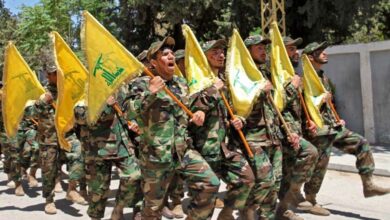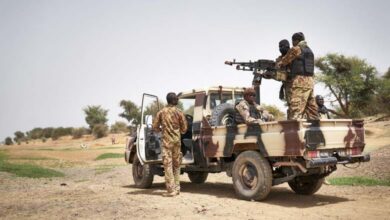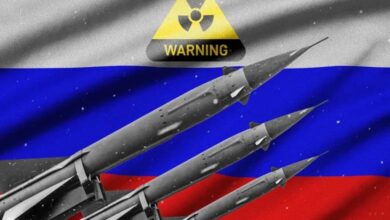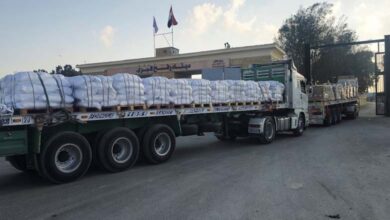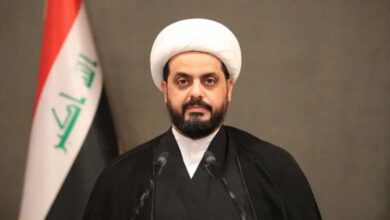Trump Accuses Tehran of Escalating the Nuclear File Despite Strikes on Its Sites
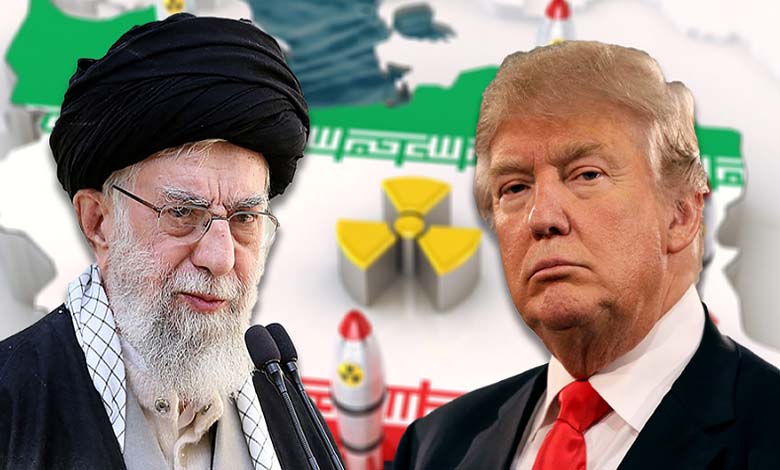
U.S. President Donald Trump stated on Friday that Iran has neither agreed to nuclear site inspections nor to halt uranium enrichment. His comments came as the International Atomic Energy Agency (IAEA) announced the withdrawal of its last remaining inspectors from Iran, following Tehran’s decision to suspend cooperation—raising expectations of further escalation.
-
In Iran’s Eid Sermon: The U.S. and Israel Present with Warnings
-
Leaks Reveal Israeli Preparations to Strike Iran and U.S. Concerns
Speaking to reporters aboard Air Force One, Trump said he believes Iran’s nuclear program had suffered a “permanent setback,” although Tehran may resume it from a different location.
He added that he would discuss the Iranian file with Israeli Prime Minister Benjamin Netanyahu during his visit to the White House on Monday, noting: “I believe Iran’s nuclear program has been permanently damaged… but they may have to start again from another location. If they do restart it, there will be a problem.”
Trump stressed that he would not allow Tehran to revive its nuclear program, noting that Iran had shown interest in holding a meeting with him.
-
Due to the Israeli aggression on Gaza… Will the U.S. State Department rebel against Biden and Blinken?
-
Washington Reveals Iranian Plan to Close Strait of Hormuz During War with Israel
The U.S. president and several officials in his administration had previously warned Iranian authorities against refusing to negotiate on the nuclear issue and choosing escalation instead. Meanwhile, Israeli officials said they were prepared to launch additional strikes on nuclear sites if Iran resumed high-level uranium enrichment in pursuit of a nuclear weapon.
On Friday, the IAEA confirmed it had withdrawn its final inspectors from Iran, as tensions grew over their ability to return to facilities bombed by the U.S. and Israel.
The U.S. and Israel claim Iran is enriching uranium to build nuclear weapons, while Tehran insists its nuclear program is for peaceful purposes only.
-
Tehran Sets U.S. Renunciation of Attack Plans as Condition to Resume Talks
-
In a Letter to the Security Council.. The U.S. Justifies Strikes on Iran with Three Objectives
Three weeks ago, Israel launched its first military strikes on Iranian nuclear facilities in a 12-day campaign. Since then, IAEA inspectors have been unable to access Iranian sites, even though IAEA Director General Rafael Grossi has emphasized that restoring access is a top priority.
In response, the Iranian parliament passed a law suspending cooperation with the IAEA until Tehran’s nuclear sites can be secured. Although the IAEA said Iran has not formally notified it of the suspension, it remains unclear when inspectors will be allowed back in.
Tehran has also reiterated that it will not withdraw from the Treaty on the Non-Proliferation of Nuclear Weapons (NPT).
-
On Iranian Orders: Israeli Newspaper Reveals Details of Assassination Attempt on Minister Katz
-
Palestinian Political Analyst: The Occupation is Deliberately Strangling Gaza… and the International Community Fails to Act
Iran accuses the IAEA of effectively paving the way for the strikes by issuing a report on May 31 that criticized Tehran’s actions. That report led to a resolution by the agency’s 35-member Board of Governors declaring that Iran had violated its non-proliferation obligations.
The U.S. and Israeli airstrikes reportedly destroyed or severely damaged three of Iran’s uranium enrichment facilities. However, it remains unclear what happened to most of the nine tons of enriched uranium, particularly over 400 kilograms enriched to 60% purity—close to weapons-grade level.



